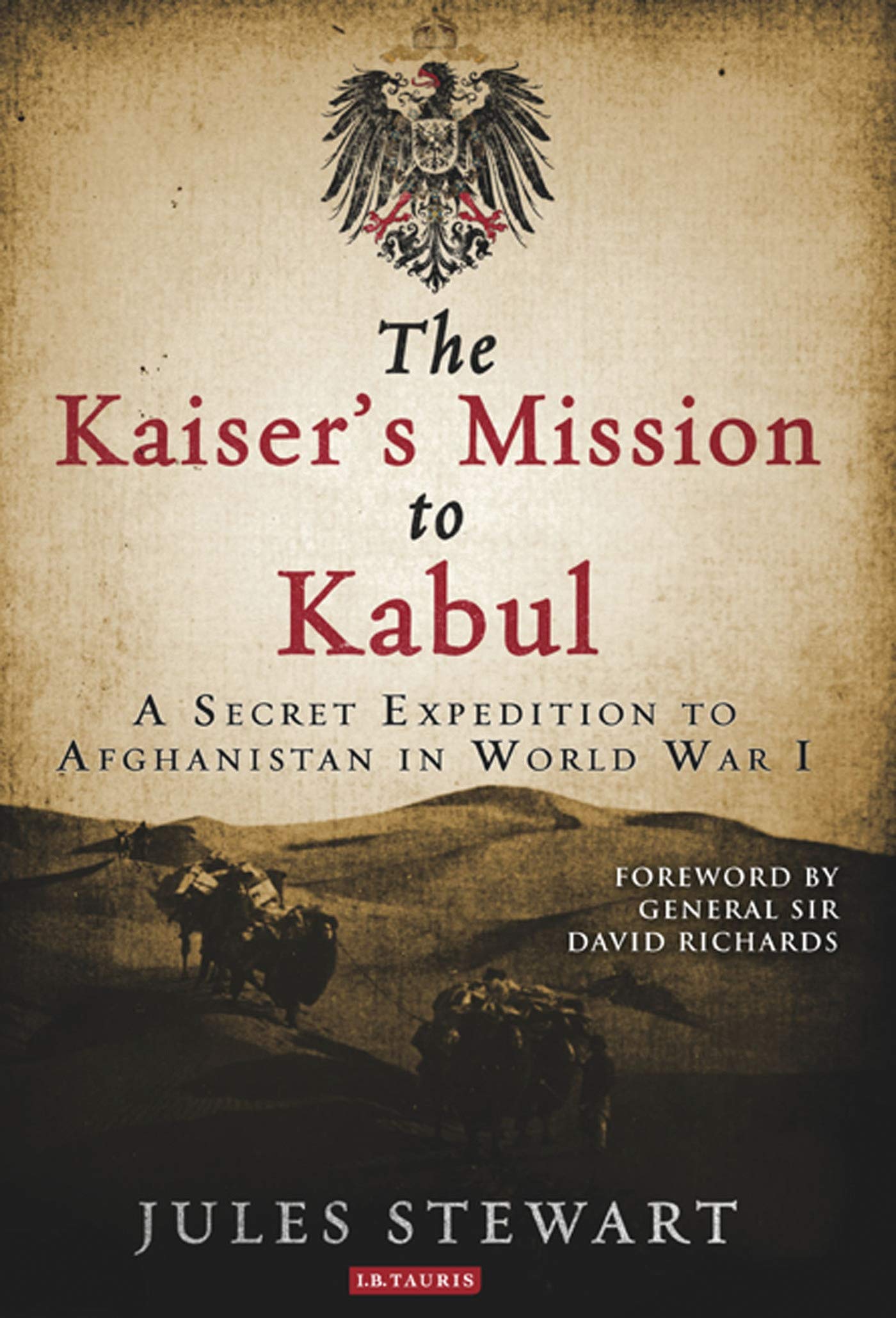Customer Services
Copyright © 2025 Desertcart Holdings Limited


The Kaiser's Mission to Kabul: A Secret Expedition to Afghanistan in World War I
J**Y
The Great Game Revisited
This is a well written, well documented, easy to read book of a little known event that occurred between 1914 and 1916 when Germany, in the early 20th century, attempted to replace 19th century Russia in "the great game" with Britain. Germany hoped to lure Afghanistan away from British protection and convince the Afghans to allow Turkey to invade northern India through Afghan territory. The combined diplomatic and military mission failed miserably, but the escape of the two principal German officers, one west across Persia, and the other east across China, reads like a modern adventure movie filled with danger, intrigue, bravery, and perseverance. It took both officers and their followers a year to travel from Berlin to Kabul and then it took one nine months to return home while the other took two years. What a story! Truth can be stranger than fiction.
S**Y
Interesting mission not covered in the military books
A very intersting book on this mission to bring the afgan goverment into war on the german side during WW1. The desciption of each of the two german officers that took on this mission to travel across the world and try to bring to afgan military to fight the british empire is interesting. The mission to equip and train the afgan army to fight a modern army to begin with was a major task. The diplomatic manovering is also covered.
C**R
Five Stars
Have not read it yet but the intro and topic interest me greatly.
G**E
Well Written, Researched and Presented
Just before the beginning of World War I, the Kaiser of the German Empire, Wilhelm II, decided it would be a good idea to cause trouble between Russia and Britain. (These two empires were headed by his cousins Nicholas II and George V, also grandsons of Queen Victoria.) What better way to foment problems in Asia than to become friends with the Afghani Emir (Shah, King). Afghanistan was the last remaining independent Moslem country in Asia (Siam/Thailand was independent but majority Buddhist). It sat right between the newly Russian conquered central Asian kingdoms and India (Kashmir and the Punjab). India had the largest Moslem population in the world and was ripe for revolution.The Kaiser had made a state visit to Kabul and was mightily impressed by his welcome. Rumors were that the Kaiser had converted to Islam and was going to make it the German Empire’s State Religion. The German General Staff was happy to go and help train the Afghani Army and bring it up to modern European standards. When war broke out in 1914, a mission was sent to Kabul to try and convince the Emir to declare war on both Russia and Britain on the side of Germany.The two men were sent to Afghanistan by the Kaiser, to present the idea of raising rebellion in both Central Asia and along the Indian border. Then as now, the border area (then Indian, now Pakistani) was known as the North-West Frontier Province. It had never been subdued by the Indian Princelings who claimed the area. Every time an Army was sent in, most didn’t come back. Just as today, the Pathans that inhabit the area, resent anyone coming into their territory.Both of the men to head the mission had lived in Asia for many years, and both spoke Farsi (Persian), the language of the Afghani court. The problem they had was getting to Afghanistan through Persia, a British sphere of influence. The story starts with a little history of the two Germans and then tells the story of how they finally made it to Kabul. They spent two years trying to convince the Emir to declare war, but were unsuccessful. Having to split up, they returned to German by a diversity of ways.The last part of the book is a follow up on the men who went to Kabul, and on those they had talked with and worked with there, and the British and Russians who spied on them.All in all well written and researched, plus well plotted and presented.Zeb Kantrowitz zworstblog.blogspot.com
P**E
I like the book's writing because it is clear
The publication in 1987 of the last official history, by F J. Moberly, of the First World War, 'Operations in Persia 1914-1919,' opened up a whole new subject within that war for me. It on pages 75-84 of the book that I encountered Niedermayer and Hentig for the first time. Since then I have been researching Britain's involvement in Persia and Central Asia reading everything from Hopkirk, Popplewell to Dunsterville, Bailey and Ellis but I could never find out much more about this pair because though they both wrote accounts of their expedition, their books were in German.This book fills an aching gap in my knowledge after a wait of 29 years.I like the book's writing because it is clear, concise and does not over use adjectives. The overall style therefore makes the book a pleasure to read.The book does also deal with Germany's involvement with Afghanistan in the Second World War, which I found interesting, but one might question how that relates to the book's title.I am surprised that in the bibliography the above book by Moberly is not mentioned.I would probably give the book four and a half stars because I'd like more - but more, I do appreciate, may not exist.
Trustpilot
2 months ago
5 days ago